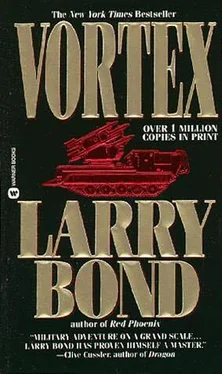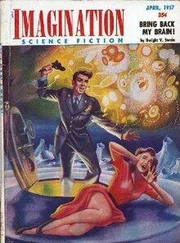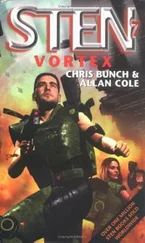For the first time, Edward Hurley spoke up.
“Won’t work, I’m afraid. The
Soviets would veto any such resolution like that!” He snapped his fingers for emphasis.
The secretary of commerce backed him up.
“That’s true. Moscow has too much power and prestige invested in a Cuban victory. They can’t afford to let the UN intervene.”
Again, the men and women seated around the long table nodded gravely.
A
Cuban victory meant de facto Cuban control over South Africa’s mineral wealth. That, in turn, meant the West would have to pay sharply higher prices for the strategic minerals it needed. For the first time in decades, Cuba wouldn’t need annual billion-dollar infusions of Soviet economic and military aid.
Even more important, from Moscow’s point of view, the prices paid for the
USSR’s own chromium, titanium, gold, and other mineral resources would climb dramatically-pouring badly needed hard currency into the State
Treasury. And if those higher prices produced a worldwide economic slump, so much the better. A depression in the industrial giants of the West would level the playing field. Power is relative not an absolute.
For the first time since the Cold War’s supposed end, the strategic interests of the Soviet Union were again opposed to those of the Western democracies.
Nicholson backed down and tried another angle.
“Then why not impose a blockade on Cuba? Cut off Castro’s ability to feed his troops and we end the war.”
“For the simple reason that they’re not being supplied from Cuba itself.
As you should know, Director.” For the first time that morning, Forrester showed his irritation openly.
“I assume you’re not proposing that we risk an even wider war by stopping Soviet merchant ships on the high seas?”
Wisely, Nicholson kept his mouth shut.
“In any event, even forcing a Cuban pullback would still leave us facing this nutcase Vorster.” Forrester grimaced.
“The President is absolutely convinced that we cannot guarantee the free flow of the minerals, and a stable international economy, without installing a democratic government of some sort in South Africa.”
He glared down the table toward the sullen, silent CIA chief.
“We’ve tried diplomatic pressures. They’ve failed. We’ve tried economic pressures. They’ve failed. And now we’re facing a situation that could wreck every economy from here to Tokyo. I’ll ask you this just one more time, Director Nicholson: What other option do we have?”
Silence.
“Right. None.” Forrester shifted his gaze toward the Joint Chiefs.
“Gentlemen, I think it’s time we started talking seriously about the use of military force. You’ve heard the President’s three objectives. Now I need to know what kinds of troops and hardware we’ll have to commit to achieve those objectives. His question created a stir among the Joint Chiefs as they talked among themselves for a moment or two.
Finally, General Hickman leaned forward.
“Mr. Vice President, one thing is very clear-the carrier battle group we’ve
got sitting off the South African coast can’t handle this on its own.”
Forrester nodded and motioned him on, knowing that Hickman and the other chiefs were talking the problem through out loud.
The Air Force general stared hard into space for several seconds and then glanced at his colleagues. Finally, he looked back at Forrester.
“Even sending another carrier battle group won’t do much good, sir. We’re going to need more than just air and sea power to impose our will on South
Africa. To do that, we’re going to need men on the ground-lots of them.
“
HEADQUARTERS, SECOND MARINE EXPEDITIONARY FORCE, CAMP LEJEUNE, NORTH
CAROLINA
Lt. Gen. Jerry Craig, USMC, squirmed in his chair as the briefer droned on and on. His intelligence officer, Col. George Slocomb, had pieced together a summary of the military situation in South Africa, but it wasn’t a straightforward military campaign. There were essentially three separate wars raging, all rapidly turning into one giant furball. Hard data on any of them was tough to come by.
Slocomb was trying to fill in the gaps by concentrating on South Africa’s confused political situation, but Craig was uncomfortable with that kind of stuff. He was a military professional-one ordinarily only too glad to leave politics to the “power tie” boys in Washington.
The general squirmed again, running his hand slowly through close-cropped red hair. It was impolite to go to sleep during a briefing you had ordered. Besides, South Africa was the hottest part of the world right now, and he had to know what was going on.
“General?” One of his aides leaned next to his ear.
“What?”
“Washington’s on the line, sir.”
Irritated at the interruption, Craig got up and walked over to a side table that held a phone. The lights came up and a low buzz of conversation started. His irritation faded, though, when he heard the voice on the other end.
“Jerry, this is Wcs Masters.” Craig knew Wesley Masters’s voice well. Two classes ahead of him at the Academy, Masters had served with him in several posts, fought with him near the DMZ in “Nam, and partied with him in some of the wildest ports in the world. Masters was also one of the few men in the Corps senior to him-the head honcho, in fact, commandant of the whole ever loving Marine Corps.
Craig automatically stiffened to attention.
“Yes, Commandant. What can I do for you?”
When his staff saw Craig’s response, all talking stopped as though it had been cut off by a switch, and every ear listened to Craig’s side of the conversation.
“Yes, sir, we’re as ready as ever. We’re prepping for Gold Eagle next month, but…
“Aye, aye, sir. I understand. ” Craig shook his head. Jumping Jesus. Had he heard that right?
“I’ll be there ASAP. I’ll radio my ETA to Andrews.
Goodbye, sir.”
Craig hung up the phone and turned to face his openly curious staff.
“Listen up, people. Drop everything in the plan of the day. Implement the recall bill and start preparations for embarkation.”
Jaws dropped all around the room. Well, he knew exactly how they felt.
He turned to his operations officer.
“Terry, call Cherry Point. I want a two-seat Hornet prepped with a pilot standing by in twenty minutes. I have to make a fast trip to Washington-real fast. And get my helicopter over here.”
Craig raised his voice slightly so that it would carry through the crowded room.
“When I get back, I want a meeting with every officer on the staff.
Everyone. Have a list of anything that might interfere with a fast embarkation.”
He smiled slightly, but there was a grimness to it.
“And it better be a very short list. “
CHERRY POINT MARINE CORPS AIR STATION, NORTH
CAROLINA
Craig barely noticed the helicopter ride to the Air Station. He spent the entire trip pretending to go over routine paperwork. Reading and signing trivial memos and authorizations helped him conceal an inner whirlpool of thoughts and emotions. Marines, generals especially, were not supposed to act like giddy schoolboys. And he’d been fighting to control his expression and his demeanor ever since the commandant’s phone call.
An order to embark was not given lightly, or routinely. It was only issued in a time of serious crisis, when the President’s list of options had shortened so much that using military force wasn’t just possible, it was probable.
It had to be South Africa. There were hot spots aplenty elsewhere, but the world’s only serious shooting war was going on down there. And
Masters had asked him to ready his entire expeditionary force! Not just a battalion or one of his two brigades. Whatever was up was big, and again that pointed to South Africa.
Читать дальше












